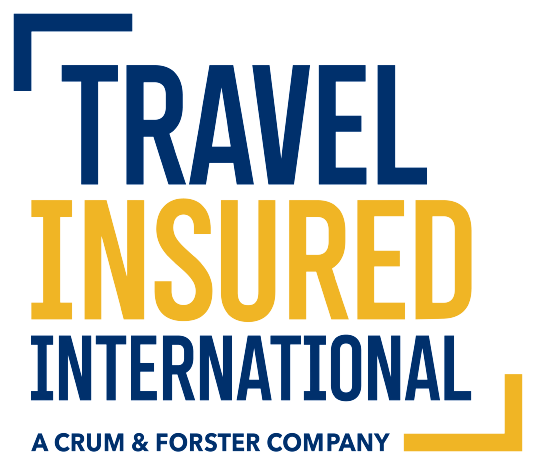The 5 Cheapest Travel Insurance Companies Of March 2024
11 min readShopping for the cheapest travel insurance doesn’t mean you have to skimp on valuable benefits. A solid travel insurance policy can prevent you from losing nonrefundable money that you’ve invested in a trip if an emergency arises.
We evaluated 39 travel insurance policies to find the cheapest travel insurance. Our top picks are the best travel insurance plans that provide solid coverage at the lowest cost.
Considering Travel Insurance?
Compare Quotes
Via Forbes Advisor’s Website

Compare & Buy Travel Insurance
The Cheapest Travel Insurance Companies Of 2024
- Travel Insured International: Best for Non-Medical Evacuation
- WorldTrips: Great for Add-On Coverage
- AIG: Travel Guard Preferred
- Nationwide Cruise Choice: Great for Cruise Itinerary Changes
- Travelex: Best for Families
Summary: Best Cheap Travel Insurance Ratings
The cheapest travel insurance policies reviewed by Forbes Advisor have decent coverage across the board at low average prices.
Average prices are based on rates for seven different trips with a variety of traveler ages.
Note that plans have different levels of benefits, which can account for price differences.
How to Find the Cheapest Travel Insurance
Be a Savvy Travel Insurance Comparison Shopper
As with most insurance, comparing policies from multiple companies can potentially save you hundreds of dollars. Travel insurance policies often include most of the same benefits, but the price and coverage amounts can vary considerably by policy.
A good place to start is to check out Forbes Advisor’s rankings of the best travel insurance companies.
A travel insurance agent can also be helpful. That person can help identify the coverage you want and then price-shop the options.
The average cost of travel insurance is between 5% to 6% of your trip cost, according to Forbes Advisor’s analysis.
Understand Exactly What Can be Insured Under Travel Insurance
You can avoid overspending on a travel insurance policy by understanding exactly what costs can be insured. For example, trip cancellation insurance will only reimburse you for prepaid and non-refundable trip expenses. Don’t buy coverage for parts of the trip that aren’t prepaid and non-refundable, such as fully refundable plane tickets. You can’t make a travel insurance claim for costs you can get refunded.
Avoid Unnecessary Travel Insurance Coverage
Be cautious about buying coverage or upgrades that you likely don’t need.
For example, many travelers buy a “cancel for any reason” upgrade in addition to standard trip cancellation insurance. It adds an average of 50% to the cost of your travel insurance plan. The upgrade gives you partial reimbursement for trip costs if you cancel for a reason not listed in the base policy—for example, canceling because you’ve had a falling out with your traveling companion.
However, if your primary concern is covered by trip cancellation—such as canceling due to an illness—you can be covered without spending the additional money to add a “cancel for any reason” upgrade.
Another example: you don’t need baggage insurance of $2,500 if you’re packing $200 worth of T-shirts, shorts and a swimsuit.
You also may not need travel medical insurance if you’re not leaving the country during your trip. This may be especially true if you’ll primarily be shopping, dining out and sightseeing and not participating in a lot of outdoor activities like hiking and biking. Your U.S. health plan will usually cover you if you become ill or injured during a domestic vacation.
And if you’re booking a trip last-minute, trip cancellation may be less important.
That’s why it’s a good idea to think about why you want travel insurance. Don’t go with the policy with the most bells and whistles that you won’t need. Instead, explore which coverage would benefit you the most.
Consider Buying an Annual Travel Insurance Policy
If you’re taking one or two trips a year, buying travel insurance for each one makes sense. But if you’re planning multiple trips, buying a policy for each one gets inconvenient and expensive.
Annual travel insurance policies are primarily designed to provide travel medical insurance for multiple trips, and at a better overall price.
These types of annual policies can make it easier to buy just one policy instead of multiple ones and could be a travel insurance solution for people who plan to take multiple domestic flights. However, annual travel policies may not make sense if you’re taking road trips.
Basic annual policies also offer limited trip cancellation insurance and trip interruption coverage.
Check Your Credit Card’s Travel Insurance Benefits
The best credit cards for travel insurance have perks and insurance benefits built in. The key here is that you must charge the entire trip on that credit card.
If your trip expenses exceed the credit card’s coverage limit, you can buy travel insurance for the remaining amount. This will make the policy less expensive than insuring the entire trip cost.
Value of Travel Insurance Should Be More Important Than Cost
Cost should not be the only factor when you’re buying travel insurance. A cheap travel insurance policy that lacks good benefits won’t pay off in the end.
“Shop for value,” says Christina Tunnah, a spokesperson for World Nomads, a travel insurance company. “Some plans are priced low for a reason—they could come with high deductibles and low benefit limits.”
For example, Tunnah says you could buy cheap travel insurance and find there’s only $5,000 for medical expenses when you have an $8,000 hospital bill from your trip. Comparison shop but don’t skimp on coverage that is important to you, such as trip cancellation or travel medical insurance.
For some people, medical coverage matters the most, and baggage insurance is less important, especially if you’re not planning to pack anything valuable, Tunnah says. Medical coverage is especially important if you’re traveling overseas because U.S. health plans may provide limited or no coverage outside the U.S., and Medicare is not accepted outside the U.S.
Travel medical insurance limits vary by travel insurance policy. For instance, GoReady offers $50,000 in travel medical coverage per person, while HTH Worldwide, Seven Corners and USI Affinity plans provide $500,000 in medical coverage, depending on the policy.

Compare & Buy Travel Insurance
Methodology
Forbes Advisor researched and analyzed 39 policies to find the best travel insurance. Among the plans that were the best (receiving at least 4 stars), we chose the five travel insurance plans with the lowest average cost to determine the cheapest travel insurance policies. Ratings are based on the following metrics.
Cost (25% of score): We analyzed the average cost for each travel insurance policy for trips to popular destinations:
- Couple, age 30 for a Mexico trip costing $3,000.
- Couple, age 40, for an Italy trip costing $6,000.
- Family of four for an Italy trip costing $15,000.
- Family of four for a France trip costing $15,000.
- Family of four for a U.K. trip costing $15,000.
- Couple, age 65, for an Italy trip costing $6,000.
- Couple, age 70, for a Mexico trip costing $3,000.
Missed connection coverage (10% of score): Travel insurance policies were awarded more points if they include missed connection benefits of $1,000 per person or more.
Medical expenses (10% of score): Travel insurance policies with travel medical expense benefits of $250,000 and up per person were given the highest points.
Medical evacuation (10% of score): Travel insurance policies with medical evacuation expense benefits of $500,000 and up per person were given the highest points.
“Cancel for any reason” upgrade (10%): Travel insurance policies received points if “cancel for any reason” upgrades are offered. More points were awarded for “cancel for any reason” upgrades with reimbursement levels of 75%.
Baggage delay required waiting time (5%): Policies with baggage delay benefits kicking in at 12 hours or less were given points.
Cancel for work reasons: (5%): Travel insurance plans that allow cancellations for work reasons were awarded points.
Hurricane and weather (5%): Policies received points if the required waiting period for hurricane and weather coverage was 12 hours or less.
“Interruption for any reason” upgrade (5%): Policies were awarded points if they offered an “interruption for any reason” upgrade.
Pre-existing medical condition exclusion waiver (5%): Points were given to policies that cover pre-existing medical conditions (if purchased within a required timeframe after the first trip deposit).
Travel delay required waiting time (5%): Policies with travel delay benefits kicking in after six hours or less were given points.
Trip interruption travel insurance (5%): Points were given if trip interruption reimbursement is 150% or higher.












